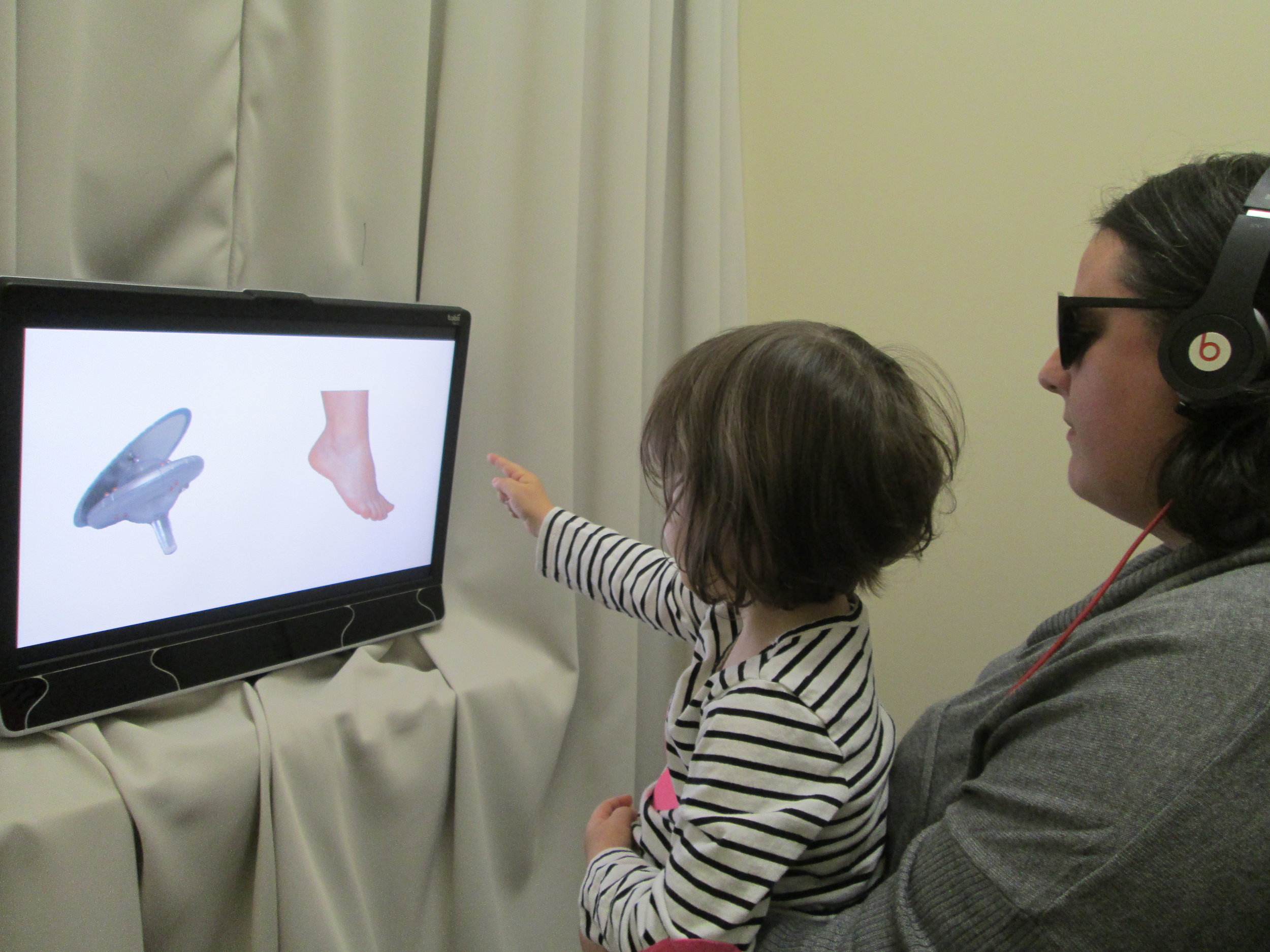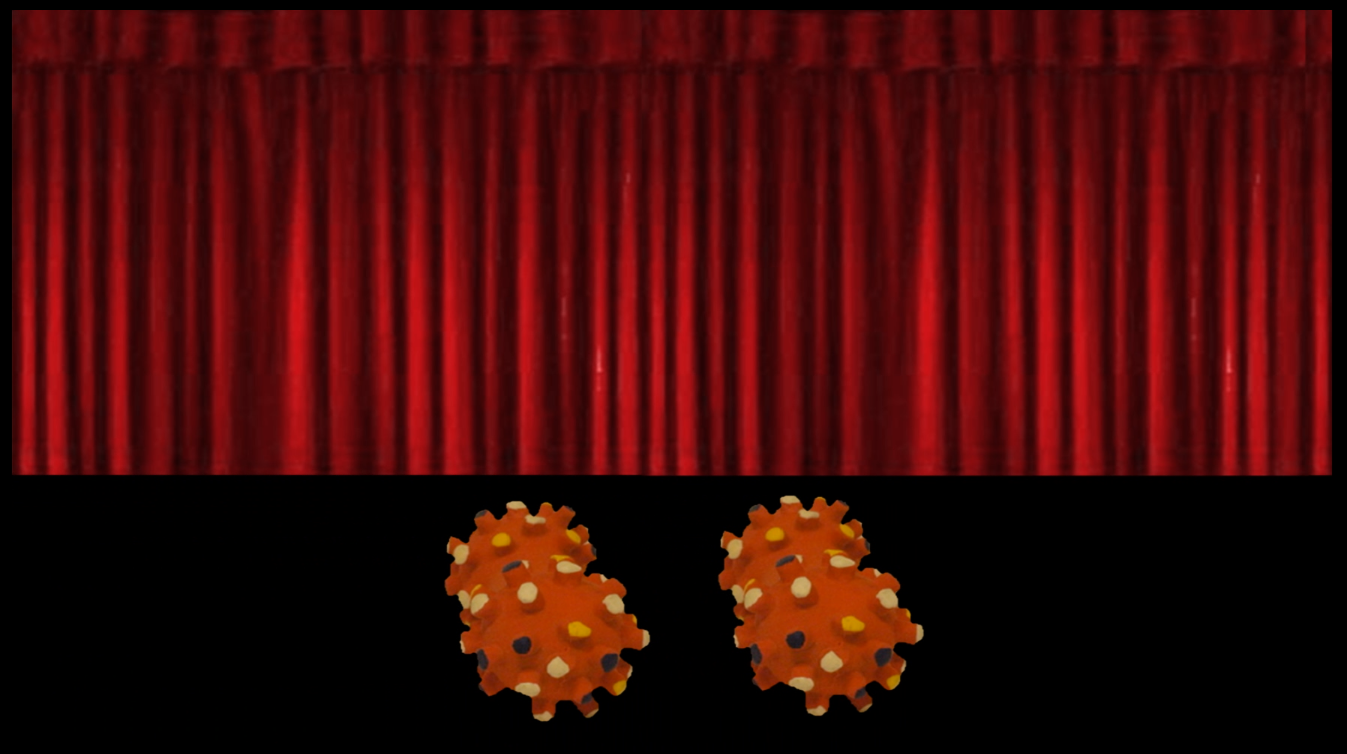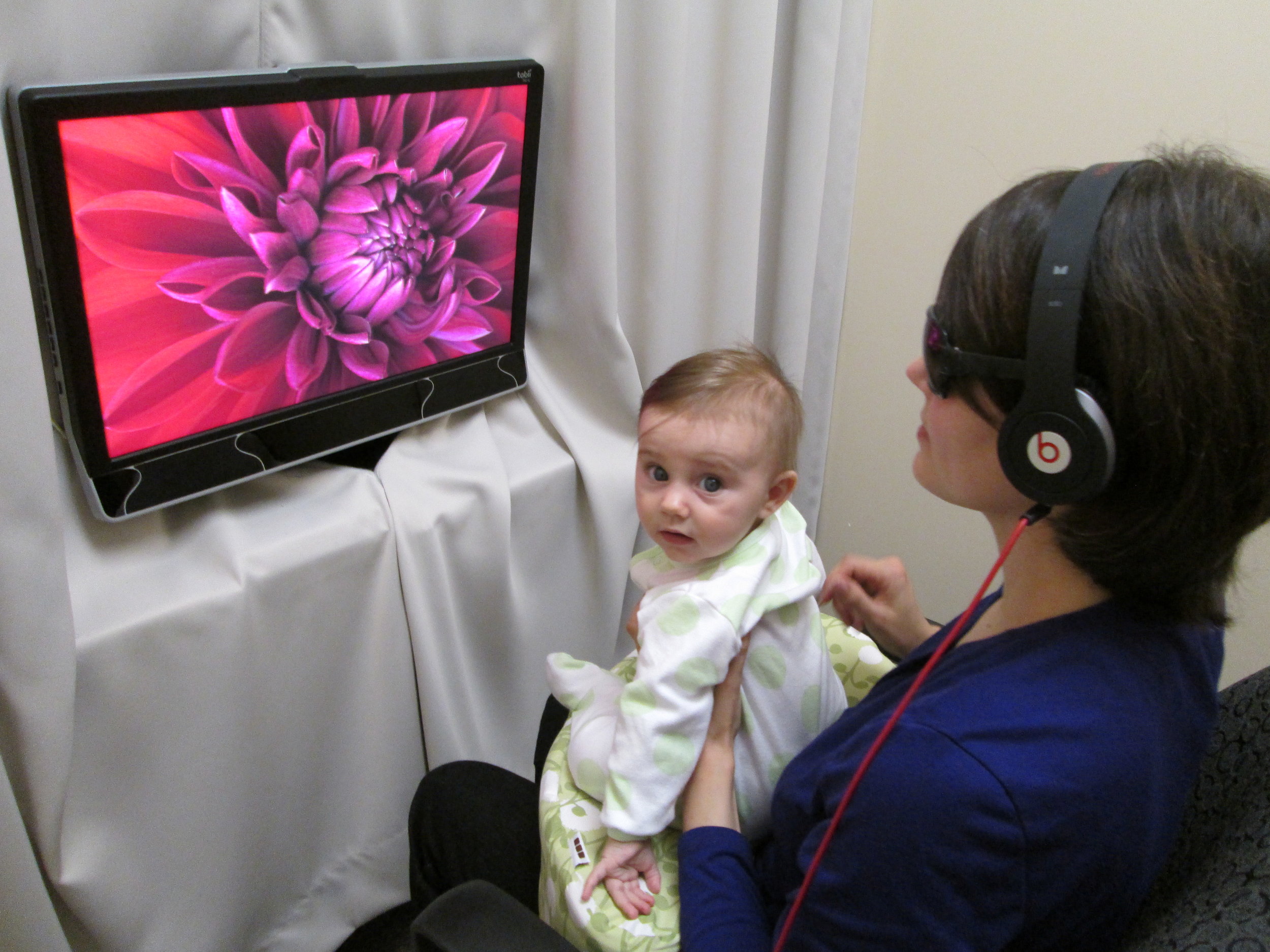Research
The Concordia Infant Research Laboratory explores language development across the lifespan, particularly in children growing up bilingual. Find out more below.
Research
The Concordia Infant Research Laboratory explores language development across the lifespan, particularly in children growing up bilingual.
Lines of research





How do bilingual infants and children acquire two languages simultaneously? How does early bilingualism affect domains beyond language? What does early bilingualism tell us about the developing mind? Our research uses methods such as eye-tracking, looking time, shared book reading, and parental questionnaires to investigate these questions. We aim to characterize normal development in bilingual infant and preschoolers, and to identify practices and strategies that promote bilingual development.
Bilingual children’s word learning
Young bilinguals hear two words for everything – one in each language. They hear these words from a variety of different speakers, some monolingual and some bilingual, some with an accent and some without. They also encounter uniquely bilingual forms of input such as language mixing (code switching). We are interested in how early bilingual experience affects word learning, familiar word recognition, and vocabulary development.
Byers-Heinlein, K., Morin-Lessard, E., & Lew-Williams, C. (2017). Bilingual infants control their languages as they listen. Proceedings of the National Academy of Sciences. doi: 10.1073/pnas.1703220114 View Online
Byers-Heinlein, K. (2016), Bilingualism affects 9-month-old infants’ expectations about how words refer to kinds. Developmental Science. Advance online publication. doi: 10.1111/desc.12486 View Online
da Estrela, C., & Byers-Heinlein, K. (2016). Vois-tu le kem? Do you see the bos? Foreign word learning at 14-months. Infancy, 10(4), 505-521. doi: 10.1111/infa.12126 PDF / View Online
Fennell, C. T., & Byers-Heinlein, K. (2014). You sound like Mommy: Bilingual and monolingual infants learn words best from speakers typical of their language environments. International Journal of Behavioral Development, 38(4), 309-316.doi: 10.1177/0165025414530631 PDF / View online
Byers-Heinlein, K. (2013). Parental language mixing: Its measurement and the relation of mixed input to young bilingual children’s vocabulary size. Bilingualism: Language and Cognition, 16(1), 32–48. doi: 10.1017/S1366728911000010 PDF / View online
Byers-Heinlein, K., Fennell, C.T., & Werker, J.F. (2013). The development of associative word learning in monolingual and bilingual infants. Bilingualism: Language and Cognition, 16(1), 198–205. doi:10.1017/S1366728912000417 PDF / View online
Byers-Heinlein, K., & Werker, J.F. (2013). Lexicon structure and the disambiguation of novel words: Evidence from bilingual infants. Cognition, 128(3), 407–416. doi:10.1016/j.cognition.2013.05.010 PDF / View online
Byers-Heinlein, K., & Werker, J.F. (2009). Monolingual, bilingual, trilingual: Infants’ language experience influences the development of a word learning heuristic. Developmental Science, 12(5), 815–823. doi: 10.1111/j.1467-7687.2009.00902.x PDF / View online
Fennell, C.T., Byers-Heinlein, K., & Werker, J.F. (2007). Using speech sounds to guide word learning: The case of bilingual infants. Child Development, 78, 1510–1525. doi: 10.1111/j.1467-8624.2007.01080.x PDF / View online
Speech perception in bilingual infants
Speech perception involves hearing and interpreting the sounds of a language. Bilingual infants must first discriminate and separate their languages, and ultimately interpret speech sounds in a language-specific way. This line of research focuses on language discrimination, phonetic development, and how bilingual children apply their speech perception skills to word learning and recognition.
Fennell, C. T., & Byers-Heinlein, K. (2014). You sound like Mommy: Bilingual and monolingual infants learn words best from speakers typical of their language environments. International Journal of Behavioral Development, 38(4), 309-316. doi: 10.1177/0165025414530631 PDF / View online
May, L., Byers-Heinlein, K., Gervain, J., & Werker, J.F. (2011). Language and the newborn brain: Does prenatal language experience shape the neonate neural response to speech? Frontiers in Language Sciences, 2(222). doi: 10.3389/fpsyg.2011.00222 PDF / View online
Byers-Heinlein, K., Burns, T.F., & Werker, J.F. (2010). The roots of bilingualism in newborns. Psychological Science, 21, 343–348.doi: 10.1177/0956797609360758 PDF / View online
Fennell, C.T., Byers-Heinlein, K., & Werker, J.F. (2007). Using speech sounds to guide word learning: The case of bilingual infants. Child Development, 78, 1510–1525. doi: 10.1111/j.1467-8624.2007.01080.x PDF / View online
Effects of bilingualism on children’s thinking
How does growing up bilingual affect children’s development in domains beyond language? This line of research investigates bilingual children’s reasoning about people and animals. Does bilingual experience change children’s social preferences? Does learning a new language alter how children’s thinking, for example about what is innate versus what is learned?
Byers-Heinlein, K., Behrend, D., Said, L. M., Giris, H., & Poulin-Dubois, D. (2016). Monolingual and bilingual children’s social preferences for monolingual and bilingual speakers. Developmental Science. Advance online publication. doi: 10.1111/desc.12392 View Online
Byers-Heinlein, K., & Garcia, B. (2015). Bilingualism changes children’s beliefs about what is innate. Developmental Science, 18(2), 344–350. doi: 10.1111/desc.12248 PDF / View Online
Byers-Heinlein, K., Chen, K.H., & Xu, F. (2014). Surmounting the Tower of Babel: Monolingual and bilingual 2-year-olds’ understanding of the nature of foreign languages. Journal of Experimental Child Psychology, 119, 87-100. doi:10.1016/j.jecp.2013.09.011 PDF / View online
Souza, A., Byers-Heinlein, K., & Poulin-Dubois, D. (2013). Bilingual and monolingual children prefer native-accented speakers. Frontiers in Developmental Psychology, 4(953). doi:10.3389/fpsyg.2013.00953 PDF / View Online
Early bilingualism: Theories, methods, and reviews
Complementing our empirical studies is work that a) advances theories of language acquisition to account for both monolinguals and bilinguals, b) proposes best methods for studying early bilingualism, and c) synthesizes and reviews the literature.
Byers-Heinlein, K., & Lew-Williams, C. (in press). Language comprehension in monolingual and bilingual children. Wiley Handbook of Psycholinguistics. E. M. Fernández & H. Smith Cairns [Eds.].
Byers-Heinlein, K. (2015). Methods for studying infant bilingualism. Schwieter, J. W. [Ed.]. Cambridge Handbook of Bilingual Processing. Cambridge, UK: Cambridge University Press, 133–154.
Byers-Heinlein, K. (2014). Bilingual advantages, bilingual delays: Sometimes an illusion. [Peer commentary on “Moving Toward a Neuroplasticity View of Bilingualism, Executive Control and Aging” by S. Baum & D. Titone]. Applied Psycholinguistics, 35(05) 902–905. doi: 10.1017/S0142716414000204
Byers-Heinlein, K. (2014). High amplitude sucking procedure. In P. J. Brooks, & V. Kempe, [Eds.], Encyclopaedia of Language Development. Thousand Oakes, CA: Sage Publications. 263–264. PDF / View Online
Byers-Heinlein, K., & Fennell, C. T. (2014). Perceptual narrowing in the context of increased variation: Insights from bilingual infants. Developmental Psychobiology, 65(2), 274–291. doi:10.1002/dev.21167 PDF / View online
Byers-Heinlein, K. (2014). Languages as categories: Reframing the “one language or two” question in early bilingual development. Language Learning, 64(s2), 184–201. doi: 10.1111/lang.12055 PDF / View online
Byers-Heinlein, K., & Lew-Williams, C. (2013). Bilingualism in the early years: What the science says. LEARNing Landscapes, 7(1), 95–112. PDF / View Online
Curtin, S.A., Byers-Heinlein, K, & Werker, J.F. (2011). Bilingual beginnings as a lens for theory development: PRIMIR in focus. Journal of Phonetics, 39, 492–504. doi: 10.1016/j.wocn.2010.12.002 PDF / View online
Werker, J.F., Byers-Heinlein, K., & Fennell, C.T. (2009). Bilingual beginnings to learning words. Philosophical Transactions of the Royal Society B, 364, 3649–3663. doi: 10.1098/rstb.2009.0105 PDF / View online
Werker, J.F., & Byers-Heinlein, K. (2008). Bilingualism in infancy: First steps in perception and comprehension. Trends in Cognitive Sciences, 12(4), 144–151. doi: 10.1016/j.tics.2008.01.008 PDF / View online







